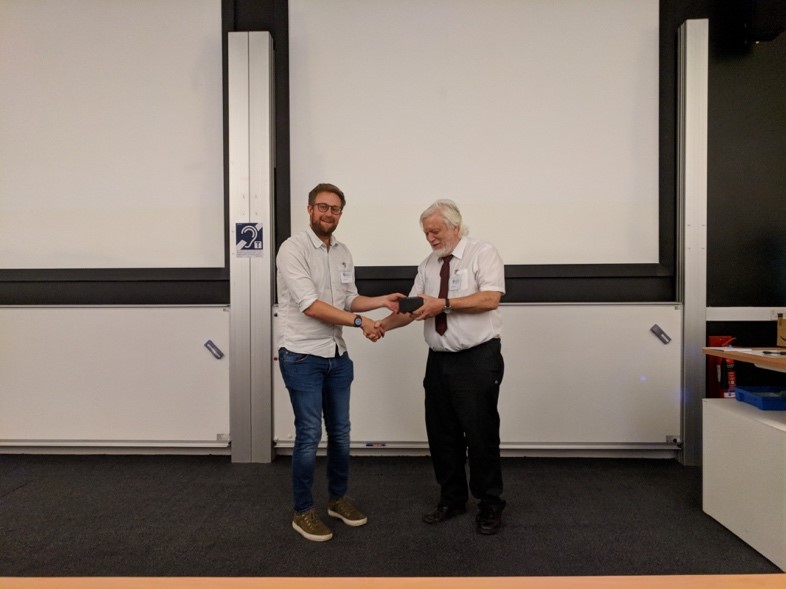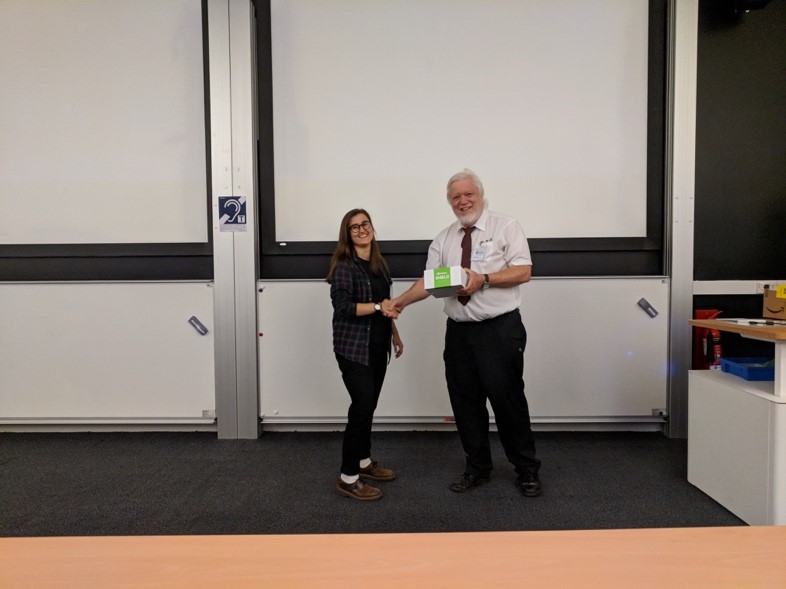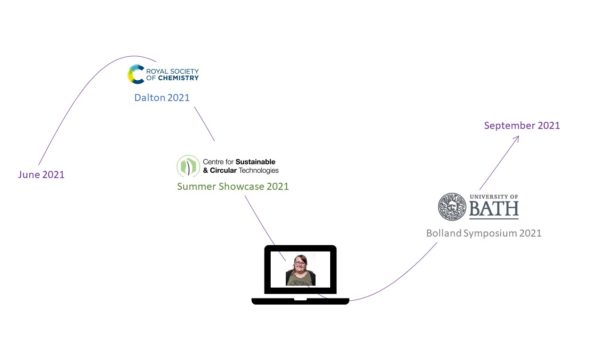Computational simulations are becoming ever more integral to scientific research. Thanks to advances in computer hardware and modelling techniques, computational chemists are now able to accurately predict properties of materials before they are synthesised, explain what is going on at an atomic level in chemical processes, and generally answer a whole range of interesting “what if…?” questions.

Megan Stalker (CSCT Cohort ’16) and Dan Davies (CSCT Cohort ’14) are two of the students in the CSCT who make use of supercomputers – also known as high performance computing (HPC) systems – in their day-to-day PhD work. The HPC facility at the University of Bath is known as Balena, and is made up of 213 “Nodes”, each of which has 16-24 “cores”. This is basically like having 213 very high specification computers all linked together, that can work on the same problem at the same time.
At the annual HPC symposium at the University this year, both Megan and Dan had the opportunity to present their work to other students and staff from 9 different departments across the campus. Megan showed how her models could be used to investigate whether or not different forms of cellulose would be any good as hydrogen storage materials, while Dan demonstrated a high-throughput screening process he had developed for finding new solar cell materials.
The CSCT took home two out of three prizes available on the day! Dan was talking in the machine learning themed session, and won Best Implementation of Machine Learning. Megan delivered such an impressive talk that she won the prize for Best Overall Contribution.


Respond


